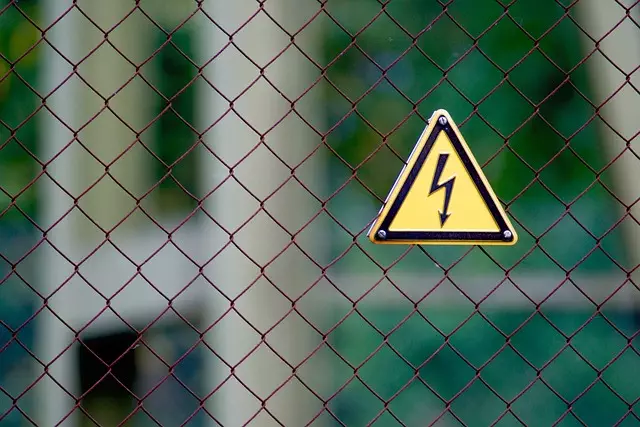Kava tea, a traditional Southeast Asian drink, has gained global attention for its relaxing and stress-relieving properties without drowsiness. With roots in Polynesian societies, it contains active compounds like kavain that interact with serotonin receptors. Modern research compares its anxiety-reducing effects to pharmaceutical benzodiazepines. In contrast, Bali kratom powder, derived from Mitragyna speciosa leaves, provides pain relief and mood enhancement but may be too stimulating for some users. A comprehensive bali kratom powder review highlights its potency, aroma, and user experience, aiding informed purchasing decisions. For gentle relaxation and anxiety relief, kava tea excels over Bali kratom powder due to its side-effect considerations.
“Discover the calming power of Kava Tea, a traditional herbal brew with a growing reputation for promoting relaxation and anxiety relief. This ancient plant, originating from the Pacific islands, has gained popularity as a natural alternative to managing stress. In this comprehensive guide, we explore its benefits, the science behind its relaxing effects, and compare it to a similar herb, Bali Kratom Powder. Learn about safe consumption practices and make informed decisions regarding these popular herbal remedies.”
- Understanding Kava Tea: Origin and Benefits
- The Science Behind Kava's Relaxant Properties
- Exploring Kava Tea Consumption and Safety
- Kava Tea vs. Bali Kratom Powder: A Comparison
Understanding Kava Tea: Origin and Benefits

Kava tea, a traditional herbal beverage with a rich history, has been a staple in the culture of Southeast Asia, particularly on the island of Bali, for centuries. Derived from the root of the Piper methysticum plant, this soothing drink is known for its unique ability to promote relaxation and alleviate anxiety without causing drowsiness. Often referred to as “kava kava” or “kaa,” it has gained global recognition for its potential therapeutic effects on mental well-being.
The origins of kava tea can be traced back to ancient Polynesian societies, where it played a significant role in social and cultural gatherings. Traditionally prepared by chewing the fresh root or grinding it into a powder, similar to a Bali kratom powder review, kava tea is now available in various forms, including loose leaves and instant packets. Its benefits have been extensively studied, highlighting its potential as a natural alternative for managing stress and anxiety. Research suggests that kava’s active compounds may interact with the body’s serotonin receptors, contributing to its calming effects.
The Science Behind Kava's Relaxant Properties

Kava tea, a traditional beverage with a rich history in Southeast Asia, has gained modern popularity for its potential relaxation and anxiety-relieving benefits. The science behind Kava’s calming properties lies in its unique chemical composition. This herbal drink contains various flavonoids and kavain, a natural alkaloid that has been studied extensively for its soothing effects on the body and mind. Research suggests that kavain interacts with neurotransmitters in the brain, such as GABA (gamma-aminobutyric acid), which is known for its calming properties. By enhancing GABA activity, kava tea may help reduce anxiety symptoms and promote a sense of relaxation, making it a popular choice for those seeking natural remedies for stress relief.
Additionally, some studies compare kava’s effects to those of pharmaceutical benzodiazepines, highlighting its potential as a safer alternative for managing anxiety. Similar to Bali kratom powder reviews that highlight its energizing and mood-boosting qualities, kava tea has been praised for its ability to create a tranquil atmosphere without causing the drowsiness often associated with other relaxing agents. This makes it an appealing option for individuals looking to unwind after a long day or those dealing with anxiety without relying on prescription medications.
Exploring Kava Tea Consumption and Safety

Kava Tea vs. Bali Kratom Powder: A Comparison

Kava tea and Bali Kratom powder are both popular herbal remedies known for their calming effects, but they have distinct profiles that cater to different preferences. Kava tea, derived from the root of the kava plant (Piper methysticum), has been a staple in Pacific Island cultures for centuries. It’s renowned for its ability to promote relaxation and reduce anxiety without causing drowsiness. The active compounds in kava tea, such as kavain and dihydrokavain, are responsible for its soothing effects on the nervous system.
On the other hand, Bali Kratom powder comes from the leaves of the Mitragyna speciosa tree and is known to offer a range of potential benefits, including pain relief, mood enhancement, and increased energy levels. While it also has anxiolytic (anxiety-reducing) properties, its effects tend to be more stimulating than sedative, especially when consumed in higher doses. When comparing Kava Tea vs Bali Kratom Powder for relaxation and anxiety relief, kava tea stands out due to its gentler action, making it suitable for individuals seeking a more subtle yet effective calming experience. A Bali kratom powder review often highlights its potency, but that strength may not be ideal for everyone, especially those looking for a natural alternative with minimal side effects.
Kava tea, with its rich history and proven benefits, offers a natural and safe alternative for those seeking relaxation and anxiety relief. While Bali Kratom Powder Review highlights the latter’s popularity, kava stands out as a gentle herb that promotes calmness without the same potential side effects or concerns regarding tolerance and withdrawal. Understanding the science behind its relaxing properties and proper consumption ensures a peaceful experience. Whether choosing kava tea or comparing it to other herbal remedies like Bali kratom powder, prioritizing knowledge and safety is key to harnessing nature’s soothing gifts.






